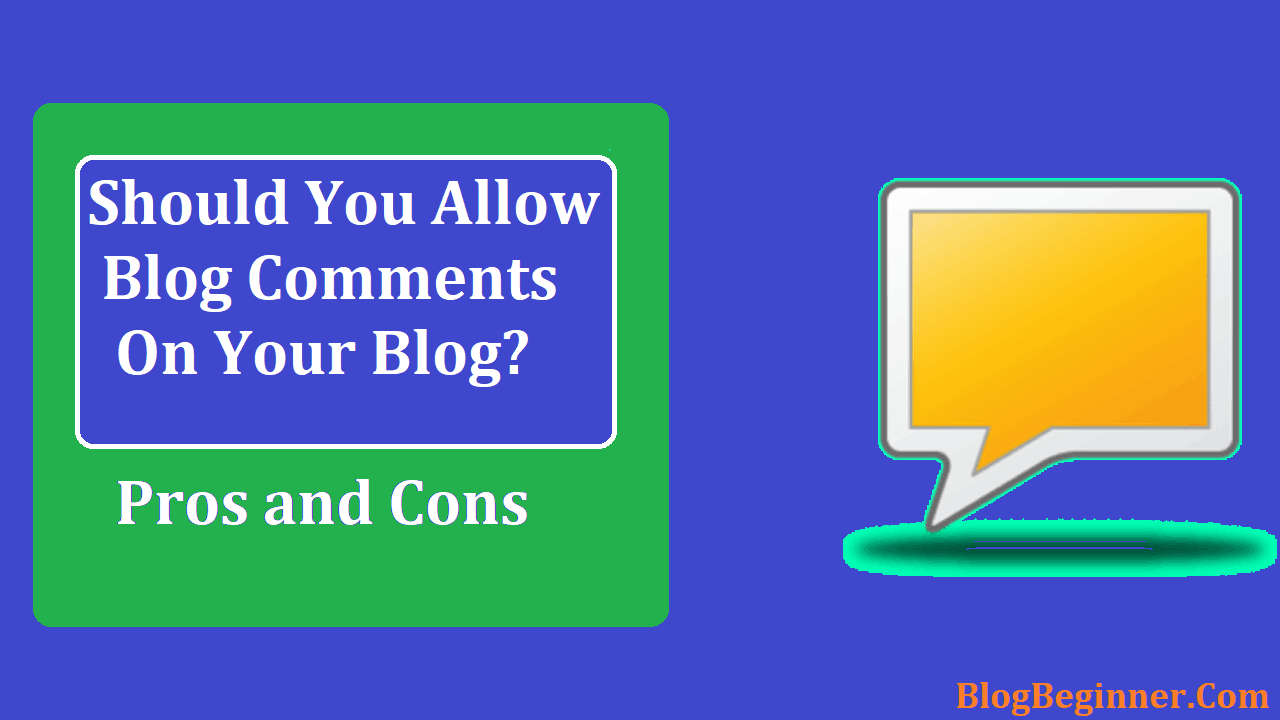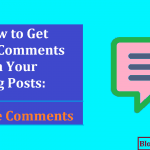Receiving notifications that your post was liked, retweeted, or shared by someone else is part of the fun of publishing posts online.
But among the notifications that one may receive from his/her posts, receiving comments is what authors appreciate the most.
This is because comments take a lot more effort than likes or shares which merely require a single click.
When it comes to blogging, however, comments are appreciated and accepted differently. It is not as simple as judging whether the comment is positive or not, or if a criticism is constructive or destructive.
Bloggers, especially the beginners, need to know when comments actually help or hurt their blogs.
Contents In Page
Harmful Comments
-
One-liners
While positive comments like “Good job,” “Thank you so much,” “I love this post,” and “This is so helpful” are flattering to bloggers, these comments may have a different impact on the blog itself.
Short comments like the ones mentioned (especially the cliché ones) are irrelevant and they do not add any value to your post.
You may be thinking that you can just keep these on your blog’s comment section so visitors would know that your post generated a lot of positive feedback.
Well, the truth is, you will just hurt your blog’s chances of receiving a genuine comment from a sincere commentator.
Many readers look at the comment section first before reading the actual post in a blog.
And honestly speaking, curious readers are more attracted to a post that generated only a few, but relevant and interactive comments than a post which gathered hundreds of “good post” comments.
Not to mention that keeping a large number of comments increases the time it takes for your page to load.
-
Comments of Unidentifiable Users
Unidentifiable users include anonymous users or users with no names, those whose names are incomplete, and those whose names do not appear to be a name of an actual person.
Though these users can post a well-written and significant comment on your post, they can give other readers the impression that your blog is accepting comments from fake users or worse, that you are faking the comments yourself.
Bloggers should always remember that a genuine commentator should not be afraid to disclose his/her whole name when posting a comment.
-
Comments of Trolls and Spammers
Regardless if you are blogging or not, trolls and spammers should not have a place in your comment section. Aside from these users using fake accounts, their comments are most probably unrelated to the post or were made to create a nuisance in your blog.
Another problem with these users is that, when their comments are not immediately removed, they can cause visitors to believe that your blog tolerates unprofessional practices. And this will probably result to a reduced number of visitors.
Useful Comments
-
Interactive Comments and Questions
The most important comments that all bloggers pray to see in their blogs are those that stir up energy, demand engagement, and open additional topics.
These kinds of comments are what keep a blog alive as they allow interaction between the blogger and the readers. Interaction is one of the most effective ways to increase a blog’s traffic and lure more comments.
Moreover, new visitors tend to engage in a blogger’s post more when they see that commentators’ queries are being entertained.
-
Comments with Additional Information
Google has already developed smarter bots which make it more difficult for bloggers to bombard their posts with keywords (for search engine optimization purposes) without getting penalized.
In this case, having commentators that add relevant information in their comments can inject additional keywords in behalf of your blog.
These additional keywords help increase the keyword variation present in your post and consequentially increase the traffic your blog receives.
Moreover, there are times when readers leave factual comments on your post with reference to another blog. These comments will not harm your blog even if they contain links that will redirect readers to an unaffiliated blog.
Remember, you want your readers to gather as much information as they need. Limiting them to your post may backfire on your brand in the long run.
-
Comments of Regulars
Regulars refer to readers who regularly visit your blog to check your new posts. As the regulars continue to patronize your content, you will be able to develop a stronger network and a better branding.
Like regular customers in business, you want to maintain your relationship with them by constantly checking on their comments, suggestions, and feedback.
Filtering is Key!
Turning off the comment feature of a blog is certainly not a good idea, especially for beginners. You will always need your visitors’ opinions and advice to come up with better output in the future.
Allowing all the comments to be published on your blog is not a good idea either as this will only result to slower loading time.
This situation leaves you with no other choice but to manually pick the comments you want to stay in the comment section.
This filtering process, however, can be made easier by employing several policies and practices that are proven to be effective.
One of them is imposing a comment policy on your blog. You may change your blog settings and require additional information from users (e.g. full name, age, and email address) before they can leave a comment.
Alternatively, you may allow users to simply use their legitimate Facebook accounts for commenting.
It is also possible to outsource commentators. These third-party services provide a guaranteed boost in your blog engagement — although they can be costly.
There are several other practices that can help your blog earn worthy comments.
Regardless of what you use or implement, the most important thing is that you constantly check on these comments to see if there are some that need to be removed. That way, your blog will stay clean and attractive to visitors and potential regulars.








